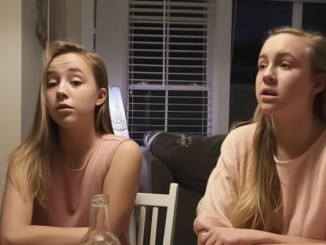
Deemed a “Dystopian Apartment,” a building in China has recently gone viral on TikTok. Incredibly, it has the ability to host up to 30,000 residents.
The video was posted by @fatheristheone using a drone and caught people’s attention for more than just the impressive interior and unique design.
People were also astonished after seeing footage that truly captivates the enormity of the building.
Many people have read at least one novel focusing on a Dystopian society. Or at least understand that it describes a society that lives in fear or has been dehumanized.
Most works have been fiction, although some might argue they’re a possible warning about the future.
Either way, China currently has an apartment building that can house up to 30,000 residents at one time. Furthermore, containing everything residents could possibly need.
Features of the Dystopian Apartment
The “dystopian” apartment, called the Regent International, is located in Qianjiang Century City, more specifically, in Hangzhou’s central business district.
The building was actually designed by Alicia Loo, chief designer of a 7-star hotel called the Singapore Sands Hotel, and was inaugurated in 2013.
Impressively, the building is 675 feet tall and is currently home to around 20,000 residents. It is an S-shape and has 36, or 39, floors depending upon which side of the building you are.
Unsurprisingly, it’s one of the most densely populated areas in the world, thanks to the numerous residents coexisting under one giant roof.
Within the more than 30 floors of the Regent International, there are a number of amenities. Some include restaurants, swimming pools, and nail salons.
The building also contains its own grocery stores and internet cafes. Essentially, anything one might find “in town” can be found indoors the “dystopian apartment”.
As a result, many residents may never step foot outside again. Posing the question, will they also never get any fresh air or feel the sunlight on their skin? First, the residents aren’t forced to stay indoors, nor are they forced to live in the “dystopian apartment.”
In contrast, most residents are young professionals and influencers or college students. Both of them greatly benefit from the cost-effectiveness and convenience of living in a place such as an S-shaped building.
Advantageous Living
Living there seems to be incredibly convenient for residents as they have everything they could possibly need under one roof.
Convenience isn’t the only advantage. Its affordability is another great benefit to living at Regent International.
Units vary in size and cost but range from 1,500 RMB, which is equivalent to around $200.00 per month, to 4,000 RMB, which is just under $600.00 per month.
While some are apprehensive, calling it a “dystopian apartment,” others have praised the innovation behind the building. It’s even been called “the most sustainable living building on earth.”
Another interesting advantage comes to light in the midst of a housing crisis that is seemingly sweeping the U.S. The “dystopian apartment” could serve as a model for how the U.S. can possibly create more living spaces for people without taking up copious amounts of land.
Interestingly, one state has already developed something like the hotel turned apartment city. Whittier, a city in Alaska, has a 14-floor building in which all 272 residents live. It, like the building in China, has everything one would find “in town.” This includes a church, school, post office, and police station.
Possible Downsides
Like everything in life, this, too, has pros and cons. After all, the building has been referred to as “dystopian apartment” for a reason.
As previously mentioned, many people are wondering how so many people can live in one place. U.S. residents tend to prefer privacy. Space from their neighbors. Even a yard to hang out in or for their dogs to play.
A major drawback to a housing solution like this is that people will have very little space of their own, with little opportunity to be outdoors or get fresh air. Luckily, the problem of getting fresh air can be remedied by taking a stroll or renting one of the larger units in the Regent International, as some come with balconies, providing some relief from living in there.
My Wife Found the Clothes She Knitted on a Scarecrow – I Turned It Into a Lesson

This story beautifully captures a range of heartfelt emotions, from a mother’s love expressed through her handmade scarves to the silent heartbreak of feeling unappreciated. The husband’s quiet determination to turn that moment of pain into a memorable family project reveals his deep understanding of his wife’s feelings and a clever way to bridge the generation gap with their grandchildren. The gentle confrontation, followed by the innocent joy of the kids and the symbolic family of scarecrows, adds a redemptive touch that feels both warm and hopeful.
It’s a story that highlights the beauty of small acts of love and the power of family, healing, and forgiveness. By involving the grandkids, the husband rekindled the meaning behind those scarves, showing how cherished memories can be renewed in unexpected ways, often deepening family bonds. The ending, where they walk away hand-in-hand, feels like a powerful reminder that shared love and understanding can mend even the most subtle fractures in family relationships.



Leave a Reply